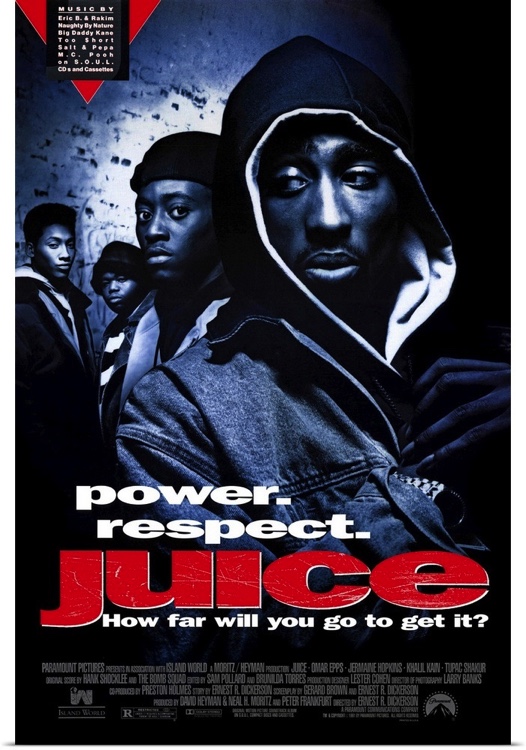
‘Juice’ Movie Review
The world where opportunity and dreams are non-existent creates a pressure cooker from the natural vitality of the human being to promote themselves in society. Juice tragically realizes the reality of a society which lacks the promotion of the general welfare. That is, in early 1990’s New York, there is no vision for adolescent teenaged Afro-American youth to live towards. There is no constellation map for determining their future selves which would elevate them out of government housing, skipping school, and stealing music albums. The concept of property, and the concept of self-worth, are non-existent.
They are more likely to salivate at the mundanity of a violent “stick-up” than to aspire towards what can be considered “social integration” – which is to participate with the larger American society through conducting themselves accordingly. No, Juice does not show an agitation of the party of four who dominate the screen time, on their lack of cooperation with the Big Apple. It shows, quite justly, the blindness almost everyone has towards the future and its permanent uncertainty. All they know is what they are and what they don’t want to be, which is stuck in the projects, and killing time rather than making honest efforts at striving forward. For what skills do they have being cultivated to permit them the ability to fly to the sun?
It is this lack of investment in themselves which cannot be called to be an obligation of their family. For how is it possible for a manual laborer, say a bus driver, to properly cultivate his son to earn a better livelihood for his grandson, who then can achieve other opportunities in future generations which are currently out of reach? Why, despite the “war on poverty” for decades, does thug life germinate? Simply because moral obligations for society require ownership from higher social classes.
Truly, the all-too-common tragedy realized by the friends whose innocence is warped towards short-sighted riskiness must be the result of a non-aristocratic society. A society whose population finds no inner call to take ownership of the moral well-being of those most vulnerable to misfortune. We can blame America’s “Worker’s Paradise”, which does not inculcate the strenuousness needed for cultivating human spirits and instead raises day laborers, for the failure to live for others as a necessity for bringing the world to come cannot come from celebrating salary or virtue.

